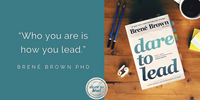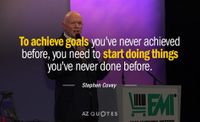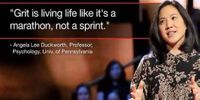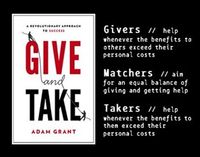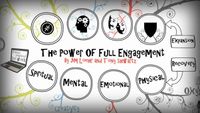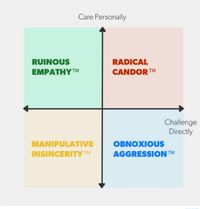Leadership Resources
Books, Recommendations, TED Talks, and Websites
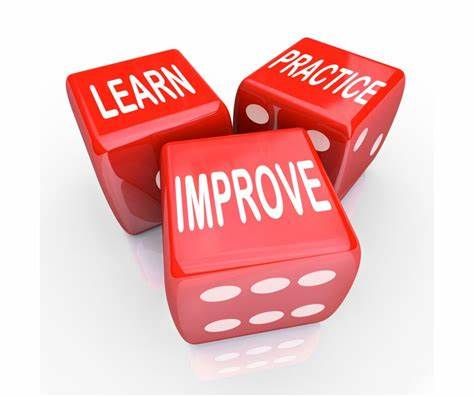
Developing Nonprofit and Head Start Leaders: Resources
Developing leaders in nonprofit organizations and Head Start programs is difficult. Limited resources of money, time, and energy are obstacles to developing true leaders. Instead, leaders put out fires, engage in direct services, and work tirelessly to make a better world.
The following resources are an eclectic set of titles—my picks of the best resources for nonprofit and Head Start leaders. This is not an exhaustive list. I have included some classic works as well as newer research. My bias is toward positive psychology that connects personal vision to organizational purpose and mission. I like work that focuses on the whole person.
I’ve included a list of resources that address the specific needs of individuals who continue to be excluded from leadership positions and discriminated against in the workplace. I have also included books by President and First Lady Obama, and I end with a list of books that promote equity and inclusion in workspaces.
I hope you enjoy reading these.
15 Books to Read
The Happiness Advantage: The Seven Principles of Positive Psychology That Fuel Success and Performance at Work. By Shawn Anchor
This is the first book I read that focuses solely on happiness and, more specifically, on strategies for happiness. Like the other books on this list, it prompted a powerful shift in my mindset. Shawn Anchor begins with the startling (at least to me) concept that success doesn’t create happiness, but that happiness leads to productivity, better health, and deeper relationships. A deep-rooted belief in your own ability to change is a central part of happiness, and the best leaders focus on the potential of each team leader.
moreDare to Lead: by Brené Brown
Dare to Lead provides practical strategies to grow and develop as humane citizens in an inclusive and positive work culture. Brown’s research and writing are helpful and inspiring. In Dare to Lead, Brown guides leaders to engage in bravery through vulnerability and shows us how to “show up with your whole self.”
moreThe 7 Habits of Highly Effective People: Revised and Updated 30th Anniversary Edition: by Stephen Covey.
Stephen Covey once said, “To achieve goals you’ve never achieved before, you need to start doing things you’ve never done before.” In his book The 7 Habits of Highly Effective People, Covey provides new ways of doing things for new achievements. This book is one of the best-known resource for leaders, and it outlines 7 habits: be proactive, begin with the end in mind, put first things first, private victory to public victory, think win-win, seek first to understand, then to be understood, synergize, and sharpen the saw.
moreGrit: The Power and Passion of Perseverance: by Angela Duckworth.
Meeting challenges and surmounting barriers rely on what Angela Duckworth calls grit and Duckworth's research examines how to develop grit. Grit encompasses passion, perseverance, and resilience. Grit is not a fixed character trait, but a skill to be learned through practice and feedback.
moreMindset: The New Psychology of Success: by Carol S. Dweck.
One way to enhance your team’s performance is to focus on a growth mindset. Carol Dweck argues that those individuals with a "fixed" mindset they succeed or fail because of their natural gifts and talents. People with a "growth" mindset think that success is within reach with appropriate effort.
moreGive and Take: by Adam Grant.
Adam Grant defines three different styles of leaders: 1) givers, 2) takers, and 3) matchers. Matchers try to create a balance between giving and taking. Most of my life, I thought I would be successful as a “matcher.” Grant convinced me that giving is the most successful reciprocity relationship. Grant argues that reciprocity cannot be governed by self-interest and that the best leaders are givers. Givers focus on what others need from them and are generous, sharing energy, time, knowledge, and ideas with all.
moreImpact and Excellence: Data-Driven Strategies by Sheri Chaney Jones.
This book is different from the rest in that it does not speak to leadership development as such. Impact and Excellence is a resource for nonprofit and Head Start leaders providing strategies to clarify the program's missions and use data to enhance teamwork and outcomes.
moreThe Power of Full Engagement by Jim Loehr and Tony Schwartz.
Jim Loehr and Tony Schwartz, draw on research with high-performing CEOs and elite athletes, to demonstrate how managing energy, not time, is central to ensuring high performance and creating a healthy, happy, and balanced life.
Loehr and Schwartz describe how to make life changes using the purpose-truth-action process. The Power of Full Engagement details how to enhance physical, emotional, mental, and spiritual energy. The balancing of stress and recovery (familiar to all athletes) is central to creating positive energy rituals.
moreThe Human Element: by Loran Nordgren and David Schonthal.
The Human Element is a guidebook for introducing new ideas and successfully implementing these innovations, despite inevitable resistance. Using the metaphor of an airplane, the authors argue that reducing drag is key to flying, thus implementing organizational change needs to address the four frictions that create drag.
moreDrive: by Dan Pink.
Leaders try to reward teams with incentives and punish them with (negative) consequences. Dan Pink describes how we need to move away from the carrot and stick approach to examine how mastery, autonomy, and purpose, motivate high performance.
moreStrengths-Based Leadership: Great Leaders, Teams, and Why People Follow Them: by Tom Rath and Barry Conchie.
Strengths-based leadership is a management style focused on recognizing and leveraging individual strengths to achieve organizational goals. It emphasizes the positive aspects of employees.
Successful leaders use three strategies: 1) know your strengths and invest in your team’s strengths, 2) get the right people with the right strengths on your team, and 3) understand the basic needs of your team.
- Tom Rath Website
- Strengths Assessment Tool: Gallup: Clifton StrengthsFinder
- Other resources for strengths-based leadership
Radical Candor: by Kim Scott.
In Radical Candor, Kim Scott uses research, her extensive experience as a leader in the tech world, and case studies to help create effective teams. Scott describes the importance of caring personally while also directly challenging ourselves and our team. Scott explains how leaders need to continuously seek feedback to improve leadership. Just as importantly, Scott argues that leaders need to provide guidance and feedback to help others grow.
She describes her first experience with “Bob.” “Bob” was an employee with skills, recommendations, and a generous manner, but he did not perform well. Scott did not provide feedback or guidance, often redoing his work (I am guilty of this!). In the end, she had to let him go, and he asked, “Why didn’t you tell me?” Scott then provides strategies to provide the criticism necessary to ensure that employees grow.
This is an important book, and while directed at business organizations, it may be especially effective for nonprofit organizations and Head Start programs where leaders are reluctant to engage in open criticism...
moreStart with Why: How Great Leaders Inspire Everyone to Take Action: by Simon Sinek.
I have grown so much from discovering Simon Sinek’s work. Anything you read by him improves your day (and your life). I have chosen to highlight Start with Why: How Great Leaders Inspire Everyone to Take Action. Most of us look at what we do and how we do it. Sinek challenges us to go deeper—to make explicit our true calling. Our “why” is the reason we get out of bed in the morning.
Much of the reading on this list is about aligning core values and your purpose with your day-to-day work. Start with Why is an extraordinary work of art that helps individuals and teams find their purpose. Sinek’s work is always about social connections and teamwork. Find Your Why is a practical guide for discovering purpose for you and your team.
Other books by Simon Sinek include:
1. Leaders Eat Last: Why Some Teams Pull Together and Others Don’t
2. Together Is Better: A Little Book of Inspiration
3. Find Your Why: A Practical Guide for Discovering Purpose for You and Your Team
4. The Infinite...
moreCompassionomics: The Revolutionary Scientific Evidence That Caring Makes a Difference: by Stephen Trzeciak and Anthony Mazzarelli.
Compassionomics is an examination of the importance of compassion in the health care industry. Physician/scientists Stephen Trzeciak and Anthony Mazzarelli present compelling evidence that compassion is a key factor in patient health. Trzeciak and Mazzarelli argue that compassion is dramatically beneficial for patients with a wide variety of health conditions and, just as importantly, reduces stress among health care workers. Compassion also promotes cost savings to hospitals.
Trzeciak and Mazzarelli present compelling evidence that 40 seconds of compassion can save lives. “Compassionomics provides the evidence that one simple tool, compassion, can affect not only the outcomes for our patients, but also the financial health of our organizations and the well-being of our providers” – Donald Berwick, M.D. (President Emeritus, Institute for Healthcare Improvement).
This is a truly excellent presentation of scientific research on the benefits of compassion in health care. Leaders working in nonprofit organizations and Head Start programs can easily apply these...
moreThe Book of Joy: Lasting Happiness in a Changing World: by the Dalai Lama, Desmond Tutu, and Douglas Carlton Abrams.
If any book should be required reading, this is it.
moreBooks By and For Historically Excluded Leaders
Minority Leader: How to Lead from the Outside and Make Real Change: by Stacey Abrams.
Life in Motion: An Unlikely Ballerina: by Misty Copeland.
Expect to Win: 10 Proven Strategies for Thriving in the Workplace: by Carol Harris.
I’m Not Yelling: A Black Woman’s Guide to Navigating the Workplace: by Elizabeth Leiba.
The Work: Searching for a Life That Matters: by Wes Moore.
It Worked for Me: by Colin Powell.
Playing the Game Without a Coach: How Courage, Resilience, and Forgiveness Helped One Man Seize the American Dream: by Benjamin Raymond.
The Year of Yes: by Shonda Rhimes.
Race, Work, and Leadership: New Perspectives on the Black Experience: Edited by Laura Morgan Roberts, Anthony Mayo, and David Thomas.
My Beloved World: by Sona Sotomayor.
Breaking Through: The Making of Minority Executives in Corporate America: by David Thomas and...
more

